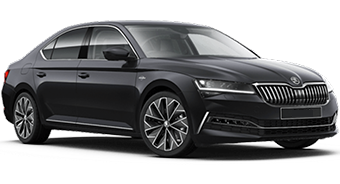In the dynamic landscape of business travel, staying ahead of the curve is essential for success. As technology advances and traveler preferences evolve, the executive transportation industry undergoes significant changes. From innovative technologies to shifting priorities, let’s explore the trends shaping executive transportation’s future and revolutionizing the way professionals travel for business.

1. Embracing Sustainability
In recent years, sustainability has emerged as a key priority for businesses across industries. This focus on environmental responsibility is also influencing executive transportation trends. Companies are increasingly opting for eco-friendly vehicles, such as hybrid or electric cars, to reduce their carbon footprint and demonstrate their commitment to sustainability.
2. Integration of Technology
Technology plays a central role in the evolution of executive transportation. From mobile apps for booking rides to GPS tracking for real-time updates, technology is streamlining the entire travel experience. Additionally, advancements in artificial intelligence and data analytics are enabling more efficient route planning and optimization, leading to smoother and more reliable journeys.
3. Rise of Mobility as a Service (MaaS)
Mobility as a Service (MaaS) is transforming the way executives approach transportation. Instead of relying on individual modes of transport, MaaS platforms offer integrated solutions that combine various transportation options, including ridesharing, public transit, and bike-sharing. This integrated approach provides executives with greater flexibility and convenience, allowing them to navigate urban environments seamlessly.
4. Focus on Health and Safety
In light of global health concerns, the emphasis on health and safety in executive transportation has never been greater. Companies are implementing rigorous cleaning protocols and sanitization measures to ensure the safety of passengers. Additionally, contactless payment options and digital ticketing systems are becoming standard practices to minimize physical contact and reduce the risk of transmission.
5. Personalized Travel Experiences
Today’s executives value personalized experiences that cater to their unique preferences and needs. In response, executive transportation providers are offering tailored services that go beyond basic transportation. From customizable amenities to curated travel itineraries, executives can expect a level of personalization that enhances their overall travel experience and makes them feel valued.
6. Focus on Wellness and Well-being
Business travel can be physically and mentally demanding, leading to stress and burnout. Recognizing this, executive transportation providers are incorporating wellness-focused amenities and services into their offerings. From onboard relaxation zones to mindfulness exercises during the journey, these initiatives aim to promote the well-being of travelers and ensure they arrive at their destination feeling refreshed and rejuvenated.
7. Sustainable Luxury
As sustainability becomes increasingly important, the concept of sustainable luxury is gaining traction in executive transportation. Companies are investing in luxury vehicles that prioritize both comfort and environmental responsibility. These eco-luxury vehicles offer executives the best of both worlds—a premium travel experience without compromising on sustainability.
Conclusion
The future of executive transportation is bright, with innovation and customer-centricity driving its evolution. As businesses adapt to changing trends and embrace new technologies, executives can expect a travel experience that is more sustainable, efficient, and personalized than ever before. By staying informed about these emerging trends, businesses can ensure that their executive transportation strategies remain ahead of the curve and continue to meet the evolving needs of their travelers.
